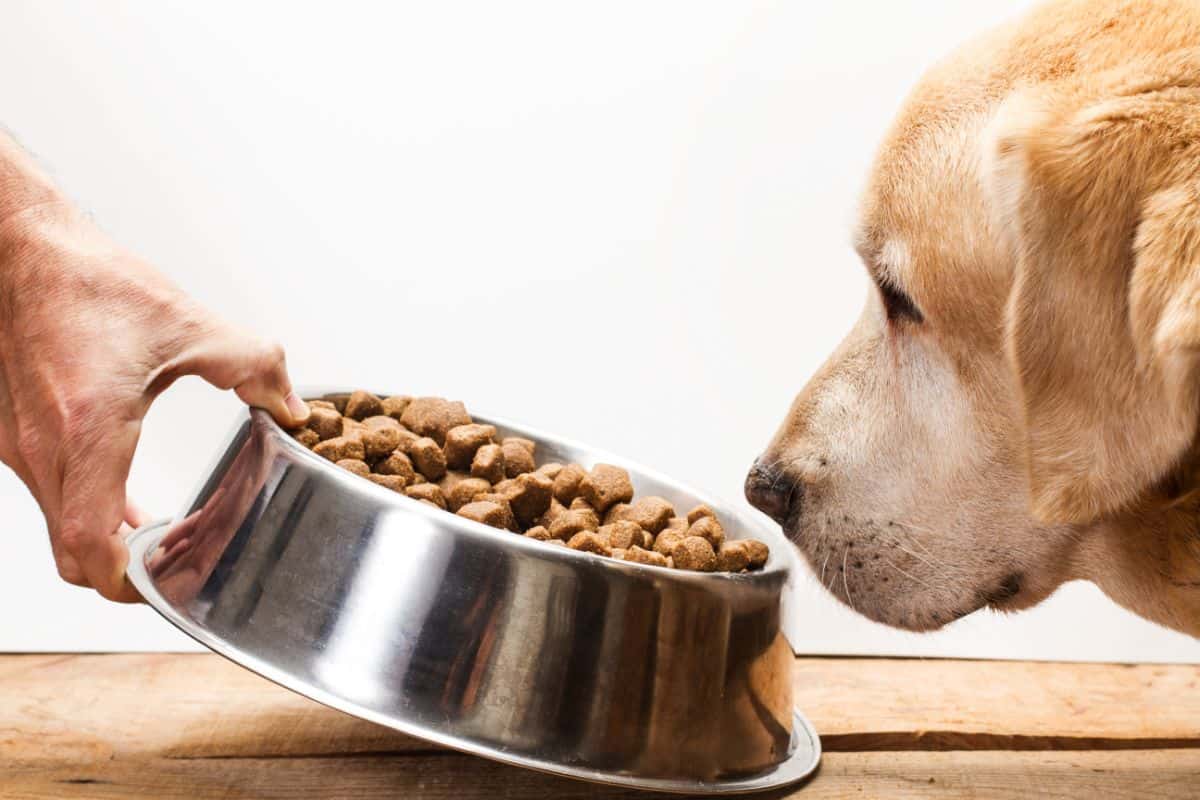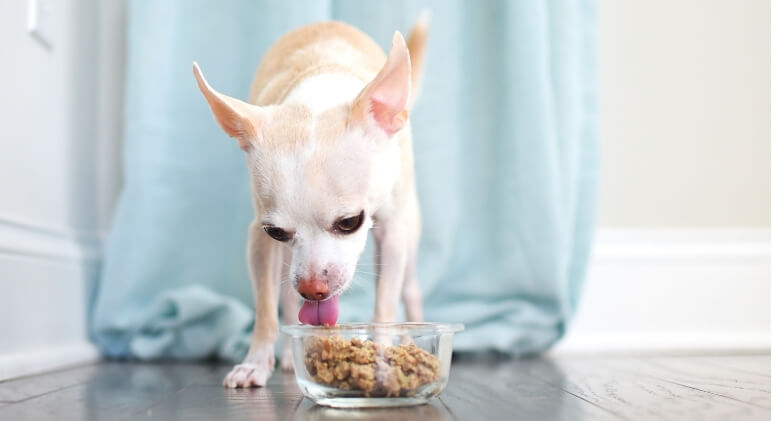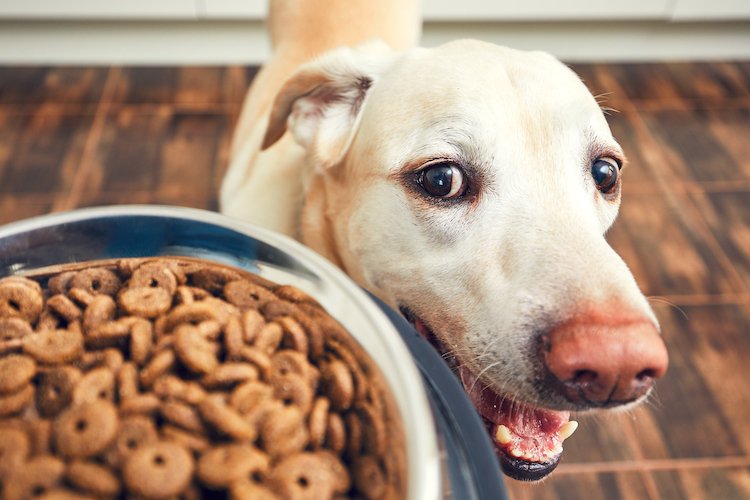Introduction
If you’ve noticed a shift in your dog’s dining tempo – the familiar symphony of kibble hitting the bowl replaced by a more leisurely munch – it’s only natural to wonder what’s going on. Let’s embark on a journey to understand the reasons behind your furry friend’s that Why Is My Dog Eating Slower Than Usual?.

Dental Issues
Imagine if every bite brought discomfort. Dogs, much like us, can encounter dental woes, from gum disease to tooth pain. When chewing becomes a source of unease, your pup might naturally slow down, trying to savor the moment while minimizing any dental discomfort. Keep an eye out for signs like pawing at the mouth or a reluctance to engage with chew toys.
Aging and Arthritis
As our beloved companions age, they may grapple with arthritis or other joint issues that can put a damper on mealtime. Bending down to eat might not be as effortless, prompting a more cautious, slower-paced approach. Look out for signs of stiffness or a hesitancy to partake in their usual physical activities.

Upset Stomach or Digestive Issues
Why is my dog eating slower than usual might be signaling an upset stomach or digestive concerns. If your four-legged friend experiences occasional bouts of vomiting or diarrhea, they may associate eating with discomfort, leading to a more careful, hesitant meal routine. Keep tabs on their digestive health and consult with your vet if issues persist.
Behavioral Changes
Dogs, much like us, are influenced by their surroundings. Changes in your pup’s eating habits could be linked to stress, anxiety, or shifts in the household routine. A new pet, alterations in your schedule, or unfamiliar environments might be contributing to their newfound reluctance at the food bowl.
Food Preferences or Dislikes
Our furry companions can be as discerning about their meals as we are. If you recently switched their food brand or introduced a new dietary regimen, they might be taking their sweet time to adjust. Additionally, dogs, like us, develop preferences, and if they’re not thrilled with the current menu, they might be adopting a more laid-back attitude towards dining.

Illness or Pain
Behind a why is my dog eating slower than usual, there could be underlying health issues or pain. Dogs may take their time with meals if they’re feeling unwell or experiencing discomfort, serving as a subtle signal for you to pay attention. Look for signs of lethargy, changes in bathroom habits, or any unusual vocalizations.
Temperature Sensitivity
Consider the impact of weather on your dog’s appetite. In warmer weather, they might eat slowly to avoid overheating, while in colder temperatures, they might pace themselves to conserve body warmth. Adjust meal times or create a comfortable dining environment to accommodate your temperature-sensitive eater.
Obesity or Weight Issues
If your pup is on the heavier side, they might naturally slow down to self-regulate their eating. Dogs with obesity or weight-related concerns may consciously or unconsciously pace themselves to prevent overeating. Consult your vet for advice on managing your dog’s weight through a balanced diet and proper portion control.
Dental Misalignment or Oral Pain
Beyond dental issues, misalignment of teeth or oral pain could contribute to a slower eating pace. Dogs might struggle to pick up and chew food efficiently, prompting a more cautious approach to mealtime. Regular dental check-ups can help identify and address such concerns.
Conclusion
A slower eating pace in dogs is often a subtle language they use to communicate with us. While various factors could contribute to this change, it’s crucial to observe for accompanying signs and behaviors. Regular vet check-ups, a consistent feeding schedule, and overall observation of your pup’s well-being will help identify and address any underlying issues. Changes in eating habits are like whispers from your furry companion, urging you to pay attention and seek professional advice if needed.
FAQS
Q1. Why is my dog suddenly eating very slowly?
Q2.Why is my dog not eating as fast?
Why is my dog eating slower than usual, several factors could be influencing this change in behavior. One common reason is dental discomfort, where issues like gum disease or tooth pain may make chewing painful, causing your dog to slow down during meals. Another possibility is a stomach upset or digestive issues, leading to a more cautious approach to eating. Behavioral changes, such as stress, anxiety, or alterations in the household environment, can also impact your dog’s appetite. Additionally, age-related factors, temperature sensitivity, oral pain or injury, changes in weight, or underlying health concerns might contribute to a more measured eating pace. It’s essential to observe your dog’s overall well-being, look for accompanying signs, and consider consulting with your veterinarian to ensure there are no underlying health issues affecting their eating habits.
While it’s generally beneficial for dogs to eat slowly, if you’re looking to encourage your dog to eat faster, consider the following tips:
- Switch to Wet Food: Wet food can be easier and quicker for dogs to consume compared to dry kibble. The softer texture may encourage a faster eating pace.
- Use a Different Bowl: Opt for a wider bowl that allows your dog better access to their food. This can make it more convenient for them to grab larger mouthfuls.
- Change Feeding Location: If possible, feed your dog in a quiet and secure environment where they feel comfortable. Some dogs may eat faster when they are relaxed and not distracted.